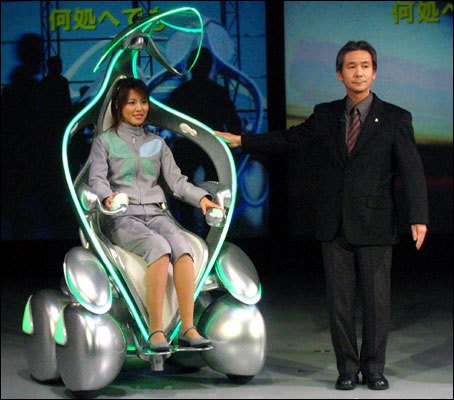Japan's Government Sees Half Of Their Cars Run On Electricity

Japan’s Ministry of Economy, Trade and Industry is electrified. They think, next-generation automobiles will make up as much as half of the new passenger cars sold in Japan in 2020, says The Nikkei [sub].
By 2020, the ministry aims to have 2 million household chargers for electric vehicles installed, along with 5,000 fast-charging stations for commercial fleets. The ministry promotes joint development of infrastructure projects between the government, industry and academia to help pave the way for Japan to become the world’s most electrified nation.
People who make cars for a living have a more conservative outlook. Privately, they think the ministry should lay off the sake.
Ford forecasts that by 2020, plug-ins, hybrids, and plug-in hybrids might garner “up to 25 percent of total vehicle sales in the U.S., Europe and Japan.” That’s “up to.”
Renault’s and Nissan’s Ghosn thinks that electric cars will account for at least 10 percent of worldwide sales by 2020. That’s “at least.”
Volkswagen sees the share of electrified cars reach 3 percent by 2018. Sorry, no 2020 target, VW is years ahead of everybody and 2018 is the target for everything at Volkswagen. By 2018, Volkswagen wants to be the world’s largest auto manufacturer, with 3 percent of the cars running on electricity.
Bob Lutz sees a market of 250,000 to 300,000 rechargeable vehicles, about 3 percent of industry-wide U.S. auto sales in 2010.
That doesn’t faze the Japanese. “A change in thinking is necessary to ensure that Japan excels with technology but doesn’t get beaten by the competition,” said METI Minister Masayuki Naoshima in a study group meeting on Monday.
Lowering costs for electricity in Japan would also help.

Bertel Schmitt comes back to journalism after taking a 35 year break in advertising and marketing. He ran and owned advertising agencies in Duesseldorf, Germany, and New York City. Volkswagen A.G. was Bertel's most important corporate account. Schmitt's advertising and marketing career touched many corners of the industry with a special focus on automotive products and services. Since 2004, he lives in Japan and China with his wife <a href="http://www.tomokoandbertel.com"> Tomoko </a>. Bertel Schmitt is a founding board member of the <a href="http://www.offshoresuperseries.com"> Offshore Super Series </a>, an American offshore powerboat racing organization. He is co-owner of the racing team Typhoon.
More by Bertel Schmitt
Latest Car Reviews
Read moreLatest Product Reviews
Read moreRecent Comments
- ToolGuy TG likes price reductions.
- ToolGuy I could go for a Mustang with a Subaru powertrain. (Maybe some additional ground clearance.)
- ToolGuy Does Tim Healey care about TTAC? 😉
- ToolGuy I am slashing my food budget by 1%.
- ToolGuy TG grows skeptical about his government protecting him from bad decisions.


































Comments
Join the conversation
MITI is famous for being the government bureaucracy which told Soichiro Honda to stop messing with cars and stick to his mettle, bikes. They also tried to prevent Sony's Akio Morita and Masaru Ibuka from licensing transistor technology from Western Electric. Stick to tried and true vacuum tubes, man! We are from the government and we know what's best for you! Those guys companies' were not on MITI's magic crystal ball of future national development. MITI is also the seer ministry that prodded, subsidized and cajoled Mitsubshi to produce the Diamond series of private jet aircraft in the 80's. What a success those were.
Japan is ideal for plugin electric to succeed and i expect that Japan will have a much higher percentage of electric vehicles than America and Europe. Japan has almost no public parking spaces so finding a private parking space with plug should be easy. Maximum speed is low so it takes long to drive far Gas is expensive. Kei cars don't invite to travel far.